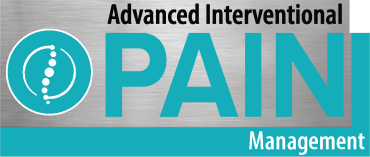Ryan Stuckey, MD
At Advanced Interventional Pain Management we offer several options for patients with chronic knee pain. These options are commonly chosen by patients looking to reduce their reliance on medications or delay/avoid surgery.
The procedures we currently perform include:
- Intra-articular corticosteroid injection
- Platelet-rich plasma injection
- Radiofrequency ablation
Intra-articular Corticosteroid Injection
This is a quick procedure that involves injection of a solution containing steroid and local anesthetic into the knee joint. It can be completed within a few minutes. The local anesthetic typically provides relief within a matter of minutes and lasts a few hours. The steroid component will take 2-3 days to start providing relief with an expected duration of up to 3-6 months.
Platelet-Rich Plasma Injection
This procedure involves collecting a small amount of blood, which is then placed in a centrifuge for 5 minutes to separate out the plasma component. Plasma contains platelets, which contain growth factors and mediators that aid in bone and soft-tissue healing. It is most effective for patients with mild to moderate knee arthritis. This procedure may be a good option for patients wishing to avoid steroid administration or for whom steroid injection no longer provides adequate relief. Patients can choose to undergo either a single injection or a series of two or three injections, which are repeated once per week. Most patients typically report benefit after the second or third injection. The expected duration of relief is up to 12 months.
Genicular Nerve Radiofrequency Ablation
This procedure involves burning the nerves that supply sensation to the knee joint. Patients typically choose this option if steroid injections no longer provide benefit or if they have previously undergone surgery or knee replacement but continue to have chronic knee pain. Patients first undergo a diagnostic injection to determine if blocking these nerves provides temporary pain relief, and if so, we can then proceed with the ablation. The ablation can be completed with mild sedation if you are anxious, but can usually be tolerated without. The area is numbed prior to the ablation and patients report only a mild pressure at the site of the procedure. The procedure takes about 10-15 minutes to complete and typically provides relief for up to 6 -12 months.
If you are experiencing knee pain, Advanced Interventional Pain Management may be able to help. Advanced Interventional Pain Management has locations throughout Arkansas in the following cities- Hot Springs, Texarkana, Little Rock, El Dorado, Arkadelphia, and Mena. If you need an appointment call 501-624-PAIN (7246), option 2, to schedule today.
References:
Arroll B, Goodyear-Smith F. Corticosteroid injections for osteoarthritis of the knee: meta-analysis. BMJ. 2004;328(7444):869. doi:10.1136/bmj.38039.573970.7C
Matzkin, Elizabeth G. MD; Curry, Emily J. BA; Kong, Qingwu MD; Rogers, Miranda J. MD; Henry, Michael MD; Smith, Eric L. MD Efficacy and Treatment Response of Intra-articular Corticosteroid Injections in Patients With Symptomatic Knee Osteoarthritis, Journal of the American Academy of Orthopaedic Surgeons: October 2017 – Volume 25 – Issue 10 – p 703-714. doi: 10.5435/JAAOS-D-16-00541
Le ADK, Enweze L, DeBaun MR, Dragoo JL. Current Clinical Recommendations for Use of Platelet-Rich Plasma. Curr Rev Musculoskelet Med. 2018;11(4):624-634. doi:10.1007/s12178-018-9527-7
Kidd VD, Strum SR, Strum DS, Shah J. Genicular Nerve Radiofrequency Ablation for Painful Knee Arthritis: The Why and the How. JBJS Essent Surg Tech. 2019;9(1):e10. Published 2019 Mar 13. doi:10.2106/JBJS.ST.18.00016
Mojica ES, Markus DH, Hurley ET, Blaeser AM, Jazrawi LM, Campbell KA, Strauss EJ. Estimated Time to Maximum Medical Improvement of Intra-articular Injections in the Treatment of Knee Osteoarthritis-A Systematic Review. Arthroscopy. 2022 Mar;38(3):980-988.e4. doi: 10.1016/j.arthro.2021.08.026. Epub 2021 Aug 27. PMID: 34461219.

